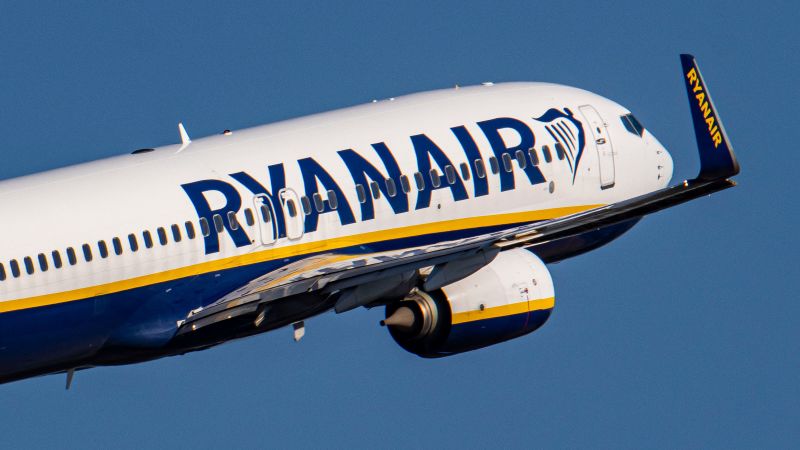The travel industry has defied a global economic slowdown, enjoying record bookings and profits as pent-up demand following the pandemic fueled spending on air tickets and hotels. But that may be starting to change.
Ryanair
(RYAAY), Europe’s largest airline by passenger numbers, warned Monday that high inflation and rising interest rates could dent appetite for air travel in the second half of the year.
“We’re concerned about the impact of these macroeconomic trends,” CEO Michael O’Leary said in a video posted on the company’s website, adding that they “might affect consumer spending in the second half of the year.”
Shares in the budget carrier, which is a bellwether for Europe’s airline industry, fell as much as 5% Monday before paring losses. Its UK rivals EasyJet
(ESYJY)and Jet2 fell as much as 4.6% and 4%, respectively, before making up some of the lost ground.
Travel has roared back following the pandemic as people stuck at home for months on end relished the opportunity to see new places and reconnect with family and friends. That has enabled carriers such as Ryanair to charge higher fares, even as economic growth has stalled in many of its biggest markets.
Late last year, O’Leary shrugged off concerns about the impact of Europe’s expected economic downturn on Ryanair’s business, calling them “overblown.”
His comments Monday show that his outlook has turned more cautious, even though Ryanair reported profit of €663 million ($735 million) for the three months ending in June — nearly four times higher than in the same period last year, when bookings were badly affected by Russia’s full-scale invasion of Ukraine.
Average air fares at Ryanair jumped 42% in the latest quarter, following heavy discounting last year, but the company noted a “softening” in fares for last-minute bookings in June and early July.
O’Leary said the airline might need to reduce ticket prices to meet its ambitious passenger growth targets, particularly as inflation and rising mortgage rates weighed on consumer spending.
He retained a characteristic note of optimism, however, highlighting that Ryanair tended to grow in recessions as flyers hunted for cheaper tickets.
The airline now expects to carry 183.5 million passengers in the 12 months ending in March 2024. That’s slightly below the previous forecast for 185 million passengers, due to delays in the delivery of new Boeing 737 aircraft.
Ryanair agreed to buy up to 300 Boeing 737-10 planes earlier this year in a deal worth $40 billion.
The Dublin-based airline — which on Friday announced plans to return to Ukraine within weeks of the war ending — forecast “modest” profit growth for the full year.
The International Air Transport Association said last month that it expected airlines globally to make $9.8 billion in net profit in 2023, more than doubling the forecast it made in December. The latest figure marks a significant turnaround for the aviation industry, which suffered net losses of $183 billion between 2020 and 2022 as pandemic lockdowns hit travel.
Read the full article here















